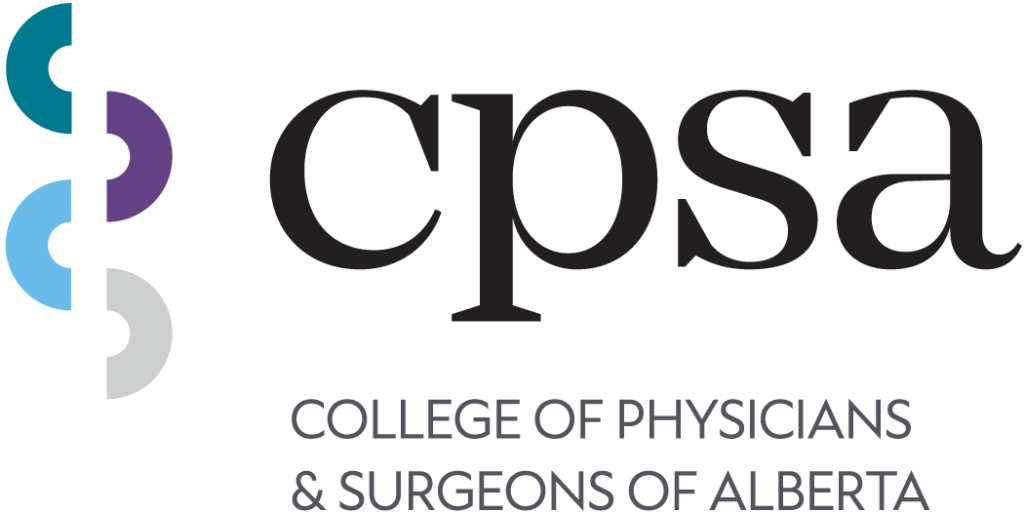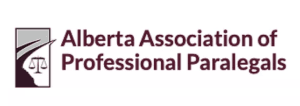Free Member’s Learner Session: Balancing the Conversation in MediationRead More
Free ADR Webinar – Irish Mediation Act 2017
The pros and cons of regulating mediation practices and professionals in Canada has been debated for years. In this webinar, we hear about the experience in Ireland with its Mediation Act, 2017 and if this model should be considered in Canada.
February 17, 2022 at 11:30am – 1:15pm
Free & Online
Calling All Writers – Write for ADR Institute of Canada
ADRIC welcomes articles from members and friends (in both official languages) for their two official publications, Canadian Arbitration and Mediation Journal and ADR Perspectives e-newsletter.
Authors who submit articles enjoy the recognition received by being in Canada’s premier ADR formats. Your ideas and opinions reach the finest, most influential audiences across Canada: ADR practitioners in the Journal, and parties and their lawyers in ADR Perspectives. In addition, authors are eligible for ADRIC CEE credit hours. Consider submitting an article today! Find more details on the Job & Volunteer Board.
Calling All Writers – Write for ADR Institute of CanadaRead More
Free Webinar: Being Cyber Safe – Why It Matters
In the presentation, “On Being Cyber Safe – Why It Matters” we’ll underline the importance of Internet and computing hygiene and provide you with some ideas that will help guide you in your day to day Internet activities. You’ll walk away with tips and tricks you can use in your personal life and leave with an appreciation of why carrying these behaviours over into the workplace matters. Among the varied items we’ll touch upon, we’ll also take a few minutes to dive into an example of a business email compromise, the most successful vector of attack leading to data breaches.
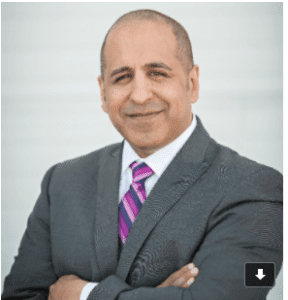
Speaker: Phil Palamattam
Phil Palamattam is a Senior Manager at ATB Business Risk, Fraud and Cybercrime. His role at ATB is to share knowledge and educate employees, clients and the general public about fraud and cybercrime risk and how everyone has a role to play in protecting themselves and their workplaces. Before moving to ATB Business Risk, Phil was a Senior Manager with ATB’s Operational Risk Management where he worked in a governance and oversight capacity, responsible for overseeing fraud, physical security and incident management risk, including providing fraud subject matter expertise in relation to new initiatives.
Prior to ATB, Phil was a police officer with the Edmonton Police Service. Having retired after serving 25 years. For 15 of those years, Phil managed the EPS’ Technological Crimes Unit, investigating, and managing the investigation of cyber crimes, digital forensic examinations and forensic video analysis. In 2015 he launched EPS’ first dedicated Cyber Crime Investigative Detail. He ultimately retired from the Edmonton Police Service from it’s Economic Crimes Section tasked with investigating large scale or complex frauds that would involve at times, numerous complainants, profit and not for profit organizations across a broad range of industries. He would say if anything, he enjoys the fraud and cybercrime space because it’s a never ending journey in learning how bad actors operate while giving insight into our own vulnerabilities.
January 26, 2022 at 11:30 am – 1:15 pm
Free & Online
Construction Adjudication is Coming to Alberta
Alberta will enact its prompt payment legislation and regulations in 2022, and ADRIA expects to be named as a Nominating Authority (NA) for qualified adjudicators. Similar programs are in place or advancing in other provinces, and the Federal Government will soon propose similar legislation.
Now is the time to enhance your knowledge and training credentials in construction adjudication!
The ADR Institutes have partnered with the Royal Institution of Chartered Surveyors (RICS) to deliver comprehensive construction adjudication training, and the next online series begins in late January.
The Training Program is in three modules:
Module 1: All About Construction Adjudication
Presented online Monday January 31, 2022 – 10:00am – 6:00pm Eastern Time
A one-day overview of how adjudication works and how to get the best out of it – illustrated with a practical case study presented by one of the UK’s most experienced adjudicators on the RICS President’s Panel.
Who will benefit?
This course is designed for construction and client organization staff, property developers, lawyers, quantity surveyors, architects, engineers, project managers, and anyone who would benefit from a clear understanding of adjudication.
It also provides an ideal networking opportunity for prospective adjudicators as well as party representatives and advocates to meet potential users of adjudication in Canada.
Certification: ADRIC-RICS Introduction to Adjudication Program Certificate of Completion
Professional Development Accreditation:
• Eligible for ADRIC Continuing Education & Engagement (CEE) points
• CPD accreditation pending from all Canadian law societies and other professional bodies.
Fee:
Members & Non-members: $299 plus applicable taxes
Scroll to end to see Cancellation Policy.
Module 2: Adjudication Advocate Course – Advising and representing parties in adjudications
Presented online February 7 & 8, 2022 – 10:00am – 5:00pm – Eastern Time
Module 3: The Adjudicator Course
Dates to be confirmed – Spring/Summer 2022
Free Webinar: Introducing a Contemplative Practice into your Practice
Imagine what the world could look like if we had more awareness or were more skillful in providing constructive feedback to each other!
Jules utilizes “Active Engagement” (the art of active noticing and mindfulness) as a principled way to help teams, clients and consultants, families and loved ones have honest and safe conversations with each other. He promotes self reflection and being more aware of our own behaviors and actions to see if they are in alignment with our espoused values. Are they in sync? Really??? Let’s find out.
Perfect lessons and reminders as we re-emerge into a new world post Covid world.

Jules LeBoeuf is a registered forestry practitioner with the College of Alberta Professional Forest Technologist with 35 years of experience in natural resource management. A career ranging from working in the field as a forest officer to senior manager in Wildfire Management has reinforced the importance of dialogue in building trustworthy relationships on the landscape or in the corporate boardroom. His insight into natural resource management and human factors has enabled him to help teams solve substantive problems more effectively through reflective dialogue practices. As a neutral third party facilitator he assists a broad range of individuals and teams based on the core principles of transparency, supporting free informed choice, creating safe places to talk together and taking time to build shared understanding with intent to take action.
He has completed a 2-year certification practicum for facilitators and trainers in the art and science of the practice of Active Engagement hosted by The Centre for Contemplative Dialogue located in Georgetown, IN, USA. He is an active faculty member and trainer/facilitator on workshops and practicums sponsored by the Center for Contemplative Dialogue and currently working as a senior manager with the Government of Alberta, department of Environment and Parks.
December 15, 2021 at 11:30 am – 1:15 pm
Free & Online
Free Webinar: Introducing a Contemplative Practice into your PracticeRead More
Join ADRIA’s New Non-Profit Mediation Roster
New Self-Study Course: Practical Ethics for Working Mediators
This course fulfills the new ethics training requirement being added to ADRIA’s Q.Med applications. A discounted rate has been established for ADRIA members taking this training. Full details at the link below.
- ensure and encourage enhanced professionalism and adherence to best practices
- assist you in creating an “Ethical Blueprint”
- increase awareness of mediation values
- assist you in becoming a more reflective practitioner
- provide a foundation for skillfully resolving ethical dilemmas that emerge in your practice
Materials include the best writings on ethics in mediation and are required reading. World renowned experts have been interviewed on camera to help bring the concepts alive for the learner.
New Self-Study Course: Practical Ethics for Working MediatorsRead More
10 Ways to Honour Remembrance Day & Take Action Towards Peacebuilding
Remembrance Day commemorates the moment armies stopped fighting and officially ended the First World War. We can honour and recognize those who have served and continue to serve during times of war, conflict and in international peacekeeping activities.
This year is the 100th anniversary of the Remembrance Day Poppy in Canada.
The poppy is not only an important symbol but also offers a fundraising opportunity; legion members and other volunteers distribute Poppies, and gratefully accept donations to the Poppy Fund.
With the ongoing restrictions due to the pandemic, you can attend a virtual Remembrance Day ceremony like the National Ceremony in Ottawa. You can also search for activities in your local community (eg. see item 4 below).
With our poppies on our lapel and with plans to attend an online ceremony, what other ways can we honour Remembrance Day and promote peacebuilding activities year round?
1. Say Thank You
If you know a Veteran or someone who has been involved in peacebuilding, reach out to them and say a heartfelt “Thank you”. You can also add some Words of Remembrance to the Legion’s online gallery. Remember that saying thank you shouldn’t only be confined to November 11.
2. Partake in Some Self Reflection
Spend some time each day quietly reflecting on how we would like to relate to ourselves and others and how we can promote peaceful relationships. Think about if there are any conflicts in your life that could use some peacebuilding. Examine your habits and media consumption to see if there are any channels influencing conflict and harmful beliefs about other groups of people.
3. Plant a Peace Garden
This activity is a great way to remember beyond just one day a year. You can plant a tree or a garden in honour of those who have sacrificed for us and as a reminder to strive for peace. The Legion sells poppy seeds for just this purpose.
4. Continue Learning about Historical Conflicts
If you get the opportunity, plan to visit the Canadian War Museum, The Military Museums of Calgary or other local history museums. If you prefer to learn from the comfort of home, The Canadian War Museum has online resources for you to explore. The Canadian Clubs of Alberta are hosting a webinar on Canadian Sacrifices in WWI on Nov 17th. You can also check out some Remembrance Day book recommendations from the public library.
5. Educate Yourself on Current Conflicts
Take some time to update your knowledge on some of the current conflicts around the world. Learn about the social conditions that can deteriorate well-being of individuals and communities such as poverty and discrimination. Learn about inequalities in human rights, health care, opportunities, safety and security. Find ways for dialogue and collaborative interaction with people who have diverse backgrounds and different perspectives.
6. Volunteer Your Time
Volunteering to help Veterans or at a center for new immigrants. You can learn first hand from Veterans and give back in a small way. By volunteering with new immigrants, you will learn about different cultures and learn about the hardships people face when they are resettling. Ask what you have to offer to others and learn what they can share with you.
7. Teach the Next Generation
Connect with kids in your life to impart peacebuilding on the next generation. There are many activities you can do with kids while discussing Remembrance Day. The Legion has some suggested learning activities and crafts. You could paint poppies on rocks and place them at a cenotaph or on the gravestones of Veterans.
8. Seek Peace with Others in Your Daily Life
Strive for connection and harmonious relationships in your life, both with those you are close to and to greater humanity. Practice forgiveness and make a commitment to acts of kindness to others.
9. Learn Skills to Manage Conflict
Learn about constructive ways to manage differences and resolve conflict.
If you are new to Alternative Dispute Resolution, you could try our course, Managing Conflict. Managing Conflict is designed to give you the basic skills you need to more effectively manage conflict.
If you’re looking for more professional training, you could take Communications in ADR. We have sessions coming in 2022 in Edmonton and in Calgary. This course introduces students to the causes and effects of interpersonal conflict, with particular emphasis on the dynamics of conflict, conflict resolution styles and the cycle of conflict.
If you’re an ADR professional, you may want to specialize in Restorative Justice and Peacemaking Circles. Learn about Restorative Justice and its application in the criminal justice system with an overview of the values, goals and principles guiding victim-offender dialogue. Gain knowledge of how peacemaking circles are being used in a wide variety of settings.
10. Find Ways to Nourish Your Hope for Peace
Talk about local heroes who promote peace. Examples can include teachers, firefighters, neighbours, and kids! Find role models to inspire you and like-minded others for support. Find and share positive information about successful peace initiatives.
Make it a Habit
Most importantly, make a habit of reflecting on the freedoms and peace in your life, and to remember the humans and animals who served and sacrificed for all we have today.
10 Ways to Honour Remembrance Day & Take Action Towards PeacebuildingRead More
Free Resources & Training for Conflict Resolution Day 2021
This Year’s Theme is Kindness & Communication
Our world is changing in so many ways and this means our manner of communication is changing. With covered faces and virtual meetings, we must rely more on the intention of the words that are being used to relay messages.
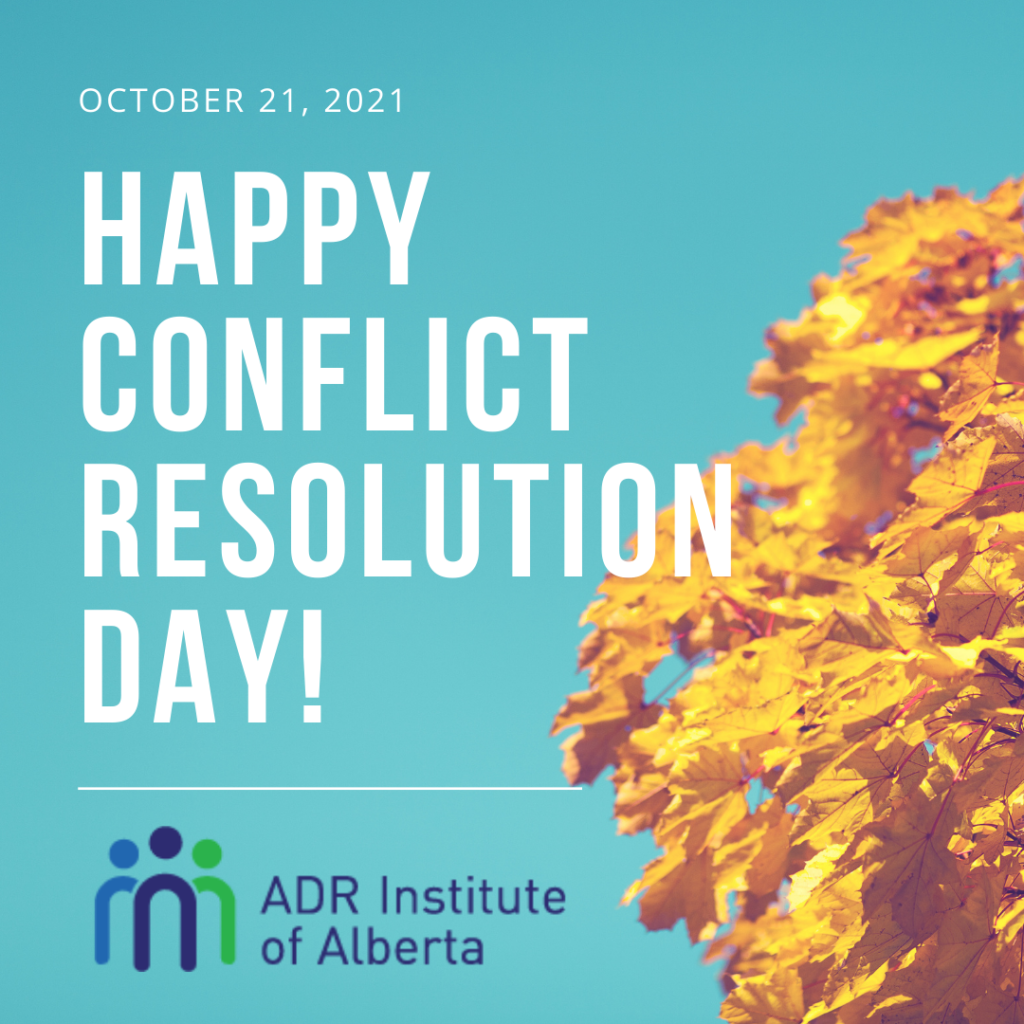
Check out some of the events and resources for Conflict Resolution Day 2021.
Visit the Conflict Resolution Day website for more information.
Free Virtual Workshop: Bring Kindness into Communication
Oct 21st 12:00pm – 1:30pm
This workshop will show us how to bring kindness into communication by exploring the differences in and value of both empathy and sympathy, create empathic statements and how empathic responses can diffuse conflict and improve relationships. We will look at the importance of being aware of alternate cultural responses in communication and how conflict can bring new insight and understanding to your personal and professional interactions.
Being kind in communications requires awareness, strength and courage. Join us on Conflict Resolution Day, October 21, 2021, to bring a little more kindness to our world.
To register for this virtual workshop, please email:info@conflictresolutionday.ca
Podcast: What is Conflict Resolution Day?
This podcast was hosted by CR Day Co-chair Don Shapira, and features Ali Ansell and Cindy Imppola, his Co-Chair and Communications Lead, respectively, from the Alberta Conflict Resolution Day Committee. They discuss what Conflict Resolution Day is all about and the upcoming session this year.
Low-Cost Online Professional Development:
Managing Conflict
Begins Online on November 18
We all have conflict in our lives. Whether you deal with other conflicts or have your own, becoming skilled in managing it can be a game-changer at home, at work, and at play.

In this course students will learn the importance of separating the person from the problem and skills that will help them discover previously unimagined possibilities for resolution. Students will learn ways to change what can be changed, the “negotiables”.
This course is for the general public; if you know someone who is not an ADR professional that could benefit from this course, please share!
Free Resources & Training for Conflict Resolution Day 2021Read More
Free Learner Session : The Heart of the Mediation Service Model
2021 ADR Conference & Conflict Resolution Day Event
Brought to you by AAMS, sponsored by ADRIA, ADRIC, AFMS and others
This is a two-day event commencing with an online Professional Development Conference on October 20th. A second day of public content is provided free to celebrate International Conflict Resolution Day.
Day 1 / Conference / For ADR Practitioners
Online on Wednesday, October 20, 2021 at 8:30am to 4:30pm
Day 1 will focus on ADR practitioners, and each session will qualify towards CEE credits. Gain valuable insights through interesting sessions at a very reasonable cost. Session topics and speakers include:
- Should ADR Professions be Regulated? (Panel discussion moderated by retired Justice Andrea Moen)
- Critical Communication Mistakes One Makes With Their Divorcing Clients & How to Correct Them
- Keynote Address: Ry Moran on Truth & Reconciliation: Generational Trauma & Healing
- Construction Adjudication
- Workplace Health & ADR
- Reforming our Family Justice System
- British Columbia’s Attorney General
Conference sessions are being recorded and will be available afterwards for all registered attendees.
Early Bird Registration – On or before October 11:
ADRIA Members – $100; Non-Members: $150; applicable taxes extra
Regular Registration – After October 11:
ADRIA Members: $150; Non-Members: $200; applicable taxes extra
Day 2 / International Conflict Resolution Day Event / For the Public
Online on Thursday, October 21, 2021
Day 2 will provide public information and valuable insights on ADR communications no matter what province you reside in. This free quality training is provided by the Conflict Resolution Day Committee; a team that has provided in-depth training for Albertans for over a decade.
Everyone: Free (registration required)
Watch for more details or visit the Conflict Resolution Day website.
2021 ADR Conference & Conflict Resolution Day EventRead More
National Day for Truth and Reconciliation & Orange Shirt Day
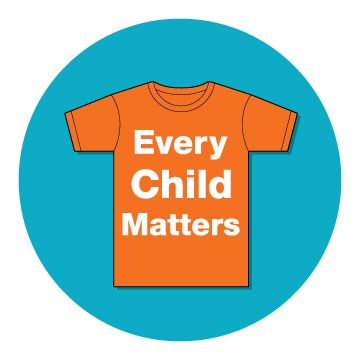
September 30 is the very first National Day for Truth and Reconciliation (as well as Orange Shirt Day); a new national holiday in Canada. It is an important occasion to reflect and have conversations with family, colleagues and friends on all aspects of Canada’s relationship with Indigenous Peoples. Canadians now have a new opportunity to learn more about the Residential School experience, and to honour the survivors, their families, and those that didn’t survive. It is a day for non-Indigenous people to learn and work towards reconciliation.
Orange Shirt Day was created in 2013 to educate people and promote awareness about the residential school system and the impacts it has had on Indigenous communities. People are encouraged to wear an orange shirt to mark the day.
The Origins of Orange Shirt Day in Canada
Below, Phyllis Webstad explains the story of her experience at Residential School and the origination of Orange Shirt Day in Canada. She discusses the present situation and her hopes for the future.
Many more videos and resources can be found on the Orange Shirt Day website.
Participate in Orange Shirt Day
If you would like to participate in Orange Shirt Day, you can choose to support organizations that donate proceeds from orange shirt purchases to Indigenous organizations. Here are some questions to ask yourself when choosing a shirt:
- Where was the shirt made?
- Who owns the company who makes the shirt?
- Where are the proceeds from this purchase going?
There are many Indigenous-led organizations that are accepting donations through this period such as Reconciliation Canada or Indian Residential School Survivors Society.
Commit to Learning
ADRIA is an organization dedicated to promoting, delivering and improving justice and access to justice in Alberta. We know that we have much work to do and are committed to listening more and learning more as we work to pursue justice, diversity and reconciliation. For more on our commitment to diversity, please read our page on Diversity Matters.
Join us in taking action to mark this national holiday by committing yourself to learning more. You may want to make space in your day on September 30th to take in a variety of learning resources including these below.
As an introduction, Bent Arrow Society in Edmonton has a great blog post on Being a Non-Indigenous Ally.
View the recording of our Indigenous History Month webinar from 2020 featuring Ry Moran speaking about the important work of the National Centre for Truth and Reconciliation or his subsequent presentation about Truth & Reconciliation work in Canada.
Commit some time on September 30th to reading the Truth and Reconciliation Commission Reports.
Watch the ADRIC recordings on Diversity in ADR, including:
- Listening Circle: What is Diversity, Inclusion and Truth and Reconciliation
- Allyship: Authentic vs Performative
- Voice and Choice: Power, Privilege and Reconciliation – Understanding and Recognizing in Ourselves and Our Clients
- The Value of Inclusion in ADR: Learning from Non-Mainstream Practitioners
- Sharing Circle: Moving our Practices and Organizations Forward, and Advancing the Process of Truth and Reconciliation
Begin the free Indigenous Canada Course at the University of Alberta.
Continue the Conversation
Be prepared to have conversations with the people around you, including the young people in your life who may have questions. How to Talk to Kids About The National Day for Truth and Reconciliation has some tips for having meaningful discussions that move towards reconciliation.
Keep having these hard conversations with your friends, family and colleagues about residential schools and other parts of Indigenous history. Keep the conversation going throughout the year – not just on September 30th.
National Day for Truth and Reconciliation & Orange Shirt DayRead More
Med-Arb Foundational Workshop
Presented by the ADR Institute of Canada
March 8-10, 2022, 12:00 pm – 6:00 pm Eastern Time
October 12- 14, 2022, 12:00 pm – 6:00 pm Eastern Time
This workshop is an intensive three-day practical immersion in the knowledge and competencies required to run a fair, effective and efficient med-arb process.
Participants will explore where med-arb fits in to the overall conflict management continuum, how it compares to other dispute resolution processes such as mediation, arbitration, and litigation, and when its use is appropriate.
Delivered by Colm Brannigan and Richard Moore, both highly experienced dispute resolution professionals.
This course, with the other criteria, can lead to the ADRIC designation: C.Med-Arb.
March 2022 Session Dates:
- Module 1: Tuesday, March 8, 2022, Noon to 6:00 pm ET
- Module 2: Wednesday, March 9, 2022, Noon to 6:00 pm ET
- Module 3: Thursday, March 10, 2022, Noon to 5:00 pm ET
October 2022 Session Dates:
- Module 1: Wednesday, October 12, 2022, Noon to 6:00 pm ET
- Module 2: Thursday, October 13, 2022, Noon to 6:00 pm ET
- Module 3: Friday, October 14, 2022, Noon to 5:00 pm ET
Registration Rates:
Members: $1200; Non-Members: $1350; plus applicable taxes
October is Designations Month: Book Your Assessment or Mock Mediation
The Designation application window opens October 1-31, 2021.
Applications are accepted until October 31, 2021 for the following ADRIC credentials: Qualified Mediator (Q.Med), Chartered Mediator (C.Med), Qualified Arbitrator (Q.Arb), Chartered Arbitrator (C.Arb), Chartered Med/Arb (C.Med/Arb), AND the new ADR Canada Family Q.Med qualification. Check the website for updates this month, and make sure to include reference letters, transcripts, supervised mock mediation forms, etc.
Temporary Fee Reductions
Remember that ADRIA has introduced a fee holiday for any Chartered applications received in October 2021. The $200 application fee will be waived.
Q.Med application fees have been temporarily cut by 50% and Q.Med applications will be accepted until the end of November.
Book Your Assessment or Mock Mediation
We require three weeks notice to schedule your C.Med Skills Assessment or Q.Med Supervised Mock Mediation so contact education@adralberta.com to book your spot.
For more information:
- How to Apply for an ADR Designation,
- Designation Requirements,
- Designation Criteria and Application forms,
- How to Book a Supervised Mock Mediation.
If you have any questions, please email Carrie at membership@adralberta.com.
The next application window is in February 2022.
October is Designations Month: Book Your Assessment or Mock MediationRead More





